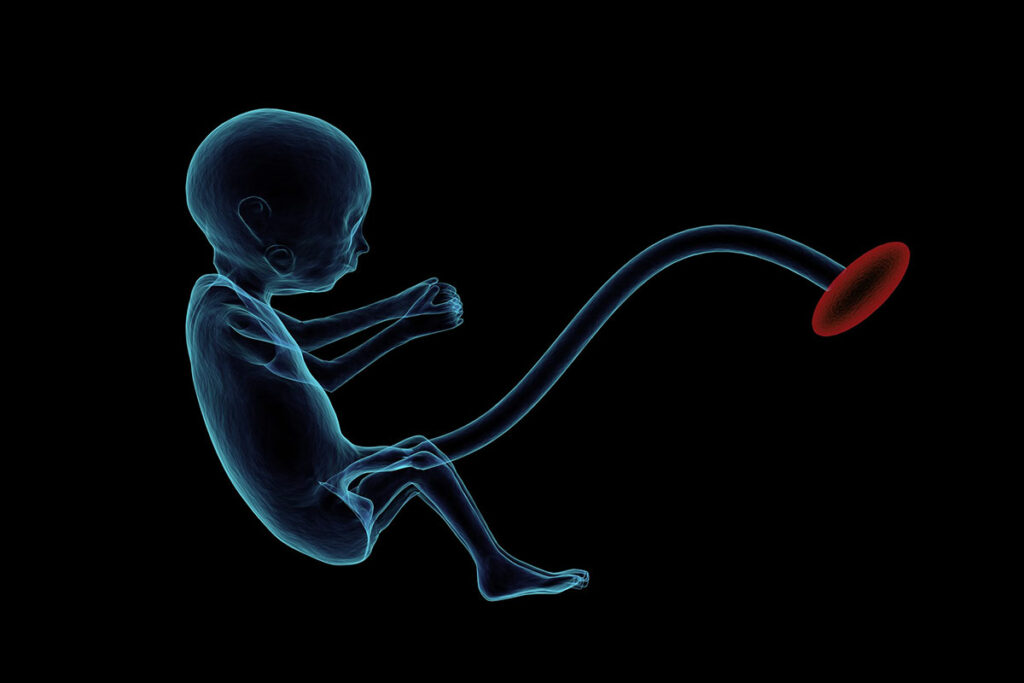One of the most exciting pregnancy milestones is hearing your baby’s heartbeat! Usually, when you are 8 to 9 weeks along, your doctor or midwife may use a fetal Doppler to check the heartbeat. However, it is possible that the fetal heartbeat may not be detected at this stage. It is even possible for a Doppler to miss the baby’s heartbeat.
While the silence can mean a missed miscarriage, you don’t need to panic. There are many other common reasons for the heartbeat to be missed or not detected during the early stages of pregnancy.
Using a handheld Doppler may not find the baby’s heartbeat in the initial stages of pregnancy or could result in calculating your dates incorrectly.
Sometimes you think you are seven weeks pregnant, but the Doppler shows no heartbeat and it can be a cause of concern. However, it is normal for expectant mothers to mix up or miscalculate the dates. Consider whether your dates are accurate before getting worried. In early pregnancy, it is quite common to be off by a few days or even to have irregular ovulation; both of these can lead to miscalculating the gestational age of your gestational sac.
Can An Ultrasound Miss A Baby’s Heartbeat?
When it comes to ultrasound scans, a baby’s heartbeat can be missed due to a few reasons.
1. Type Of Scan/Check-Up
Finding a baby’s heartbeat using a handheld Doppler can usually take some time and is more accurate when the pregnancy is at least eight to nine weeks. You may hear a heartbeat with this device at eight weeks or you may not hear it until ten weeks.
In the early stages of pregnancy, a transvaginal ultrasound is more accurate. This is a type of ultrasound in which a probe is inserted into the vagina to get better access to the uterus. If you are eight weeks or less, then a transvaginal ultrasound is the best to give you accurate results.
2. Gestational Age
If you are seven weeks pregnant or less, don’t panic if you don’t hear a heartbeat at your abdominal ultrasound. It is unlikely to find a heartbeat by ultrasound at this stage. Only a transvaginal ultrasound would be able to show a clear heartbeat.
If you are eight weeks pregnant or more and an ultrasound scan cannot detect a heartbeat, then it can be a cause of concern. However, every pregnancy is different. lways go for a follow-up ultrasound after a week todays and get professional medical advice before considering it a missed miscarriage.
3. A Tilted Uterus
The orientation of your uterus in your pelvis can make a huge difference in the ability to detect the fetal heartbeat in the early stages. Around 20% of women have a tilted or retroverted uterus, which means that it is away from the abdominal wall unlike the more common anteverted position.
This means the fetal heartbeat is further away than in a typical case and in addition to it, there are loops of your bowel in between the uterus and your abdominal wall. When these two combine, it can be hard for the Doppler to pick up the fetal heartbeat.
If this is why your ultrasound missed the heartbeat, you are having a normal pregnancy. You don’t need to worry and as your pregnancy goes along, your uterus will enlarge and slowly move closer to the abdominal wall. By this time, your baby’s heart will be stronger as well and you will be able to hear the heartbeat in the later scans.
4. Placenta Is In The Way
Another reason for your ultrasound or Doppler to miss a heartbeat is if the placenta is in the way. In some cases, the placenta grows on the anterior or front wall of the uterus. This is when it might become difficult to hear the faint heartbeat of your baby.
The Doppler will only pick up the blood flow through the placenta, which is basically your own heartbeat. But this happens only in the initial stages of the pregnancy; as you progress and your baby’s heart grows stronger, the Doppler will be able to pick up the heartbeat just fine.
Can a Fetus Stop Growing and Then Start Again?

There have been very few instances where a fetal heartbeat disappeared and then reappeared again in the early stages of pregnancy.
In most cases, when you go for a scan and don’t hear a heartbeat, especially after you had heard it in the last scan, then something might be wrong. Usually in such cases, the baby stops growing and the scan results will show that.
The chances of the baby then starting to grow again arevery rare and in most cases, it eventually leads to miscarriage or having to go through a D&C. If you don’t hear a heartbeat in your ultrasound even if you are tenweeks pregnant or more, then the doctor or midwife will schedule a repeat scan to confirm if you have had a missed miscarriage.
How Long Can A Fetus Grow Without A Heartbeat?
The fetus cannot grow once the heart stops.
There have been some cases where reports have suggested that the fetus’s growth and measurements were just what they were supposed to be, yet there was no heartbeat. In such cases, the doctor usually recommends waiting for a week and then getting a second scan. Unfortunately, in most cases, this eventually leads to a miscarriage.
When conception happens, a fertilized egg is implanted in your uterus. However, due to multiple reasons, sometimes things go wrong and the baby’s heart stops beating.
In such cases, the baby stops growing and does not continue to develop; however, your body is still in pregnancy mode, doesn’t pass any pregnancy tissue, and does not present any signs of miscarriage like pain or bleeding. That’s exactly why you might feel like you are pregnant and even feel the baby and won’t immediately even feel that anything is wrong. This is what happens in a missed miscarriage, which is also referred to as a silent or delayed miscarriage.
A missed miscarriage may also mean that your embryo didn’t develop at all and the pregnancy sac is empty. This is called an anembryonic pregnancy or a blighted ovum. Another possibility is that your baby started to grow and had a heartbeat but it stopped beating and growing. Usually, this happens in the early weeks of pregnancy, but occasionally it can occur at eight weeks or beyond.
A missed pregnancy can be very hard for the mother, as your body may still give you signals that you’re pregnant. That’s what makes you believe that there might still be hope and that the baby is still growing. However, this only happens because your placenta can still develop and even produce human chorionic gonadotropin (hCG), a pregnancy hormone. In fact, if you take a pregnancy test, it may still give you a positive test result for a little while. It can be heartbreaking!
Gradually, your hormone levels will start to fall and the pregnancy signs may decrease slightly—the breast tenderness will ease and if you are experiencing nausea, it may stop in a few days.
Fetal Heartbeat FAQs
1. When Can You Hear A Fetal Heartbeat?
A fetal heartbeat can usually be heard after eight weeks of pregnancy using an ultrasound scan. If you are using a home heart monitor or if your midwife is using a Doppler, then you might sometimes have to wait until ten weeks of pregnancy.
During early pregnancy, it is sometimes difficult to find a fetal heartbeat due to multiple reasons, so it is always best to wait until the pregnancy has progressed beyond ten weeks for an abdominal ultrasound.
2. What Causes Fetal Heartbeat To Stop?
A sudden case of fetal heartbeat stopping can sound strange and you might not be able to believe it, but it is actually quite common and most of the time, it is because of the chromosomes. Here are a few common reasons why this happens:
Chromosomal: A lot of missed miscarriages have been known to happenbecause of fetal anomalies or because of the baby’s chromosomes. This happens due to an irregular sperm or an abnormal egg, or a blend of the two. When the chromosome divides and leads to a pattern in the zygote, it leads to abnormalities. In such cases, the body fights back and tends to abort the infant before the pregnancy reaches the fetus stage.
Blood Clots: Sometimes the mother might have thrombophilia, which causes blood to thicken in the body. Because of thrombophilia, the mother might experience clots in some veins of the umbilical cord or placenta. This affects the bloodstream and prevents the fetus from getting enough oxygen and blood, causing the heartbeat to stop.
Cord Twist: In some cases, the umbilical cord gets twisted around the limbs or neck and stops the oxygen and blood supply to the embryo. This stops the heartbeat suddenly.
3. What To Do When Fetal Heart Rate Suddenly Stops?
The first thing to do is not panic. If this is your first scan, then come back again after a few days or a week and then have a routine scan done again. You can even get a second opinion if you feel that you want another scan to confirm the results.
If you are ten weeks pregnant or more and have heard the heartbeat in a vast scan, then it can be a cause of concern. Most doctors will advise you to go back home and come back for a scan again in a few days.
During this time, youmay go through a miscarriage naturally. In other instances, the doctor can suggest you have aD&C (dilatation and curettage) procedure. This is helpful because it clears out the uterus and cleans the uterine covering to make it more likely to accept the next pregnancy.
Check with your doctor about what went wrong and ask if there are any steps you can take the next time you become pregnant.
A Final Word From Bizzie Mommy: Can Fetal Heartbeat Disappear and Reappear?
That tiny blip on the screen, a strong heartbeat, is proof of life growing inside you and when the initial scans cannot detect it, don’t always jump the gun and think it is bad news. Most of the time a later scan will help you hear that first heartbeat of your tiny human.
While a fetal heartbeat can disappear and reappear during the initial stages of pregnancy, it is not very common. Once you are ten weeks along, a fetal heartbeat disappearing can be a cause of concern.
If you go through a missed miscarriage, take your time to heal. Talk to your doctors, accept help from your family, and take care of yourself. It can be tough, but there are many women who go through this and you can always seek their support.

